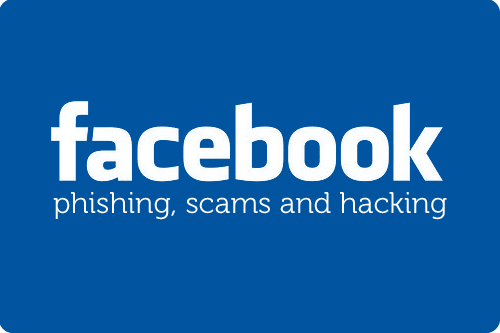 NEWS
NEWS
 NEWS
NEWS
 NEWS
NEWS
![]() Yesterday it was revealed that a UK-based information privacy company is offering the world’s first social media insurance plan to cover against Facebook, Twitter and other social media accounts being hacked.
Yesterday it was revealed that a UK-based information privacy company is offering the world’s first social media insurance plan to cover against Facebook, Twitter and other social media accounts being hacked.
The chance to receive a lump sum if your social media accounts get hacked may well appeal to some, but just how necessary is this kind of insurance? In order to decide if Facebook insurance is for you, it helps to understand how likely it is that your own Facebook account could be hacked, and how a hacker might go about doing so.
Chances of Being Hacked
Quantifying the chances of your Facebook profile being hacked isn’t particularly easy, but we can illustrate how common it is. There are no official statistics from Facebook on the number of profiles hacked each year, yet a report by security firm Sophos last year claims that the figure could be as high as 600,000 profiles every single day.
Other reports claim that at any one time, 20% of Facebook users are being exposed to malware, while an MTV/Associated Press poll of teenagers and young adults last year showed that three out of ten people in this age group have had one of their social media accounts hacked by someone who then impersonated them. If you’re a business meanwhile, the level of danger could be even higher, with Ponemon Institute claiming that getting hacked on Facebook is a ‘statistical certainty’.
How Hackers Hack
It’s pretty reasonable to assume that someone may, eventually, try to hack you. Unfortunately, there are numerous ways they can do so. A quick search in Google of “facebook hacking software” reveals a staggering 938,000 hits, but most hackers won’t go down the software route.
Instead, the most common scam is phishing – sending you a link to a fake or malicious website that pretends to be Facebook (or Twitter, or Myspace, or, or…). In many cases the URL will look very similar to the legitimate website – for example it might say ‘Tvviter.com’ instead of Twitter.com.
Another way hackers can get your password is through keyloggers or stealers, which are small, almost undetectable malicious programs that record everything you enter into forms via your browser – including your Facebook password, and other personal data.
Other possibilities include Sidejacking with Firesheep on a shared network, DNS Spoofing, or Reverting/Resetting a password. Then again, you could always become a victim the easy way, simply by forgetting to log out on a computer that someone else later uses…
Dangers of being hacked
The most common reason to hack someone’s Facebook account is simply to send out tons and tons of spam by posting on friend’s walls or sending private messages. Not only may these spam messages contain viruses, but it could get you into trouble with Facebook if someone believes that you’re responsible.
But the biggest worry is misrepresentation – Hackers can post to your wall or send out messages to your friends that are crude, threatening or generally unsuitable, quickly destroying your reputation in the process. Alternatively, they could post embarrassing images to your account, or cause other people to report you for breaking Facebook’s terms of service.
Lastly, there’s the possibility that the hacker can change your password, making it impossible for you to access your account. This can be an incredibly frustrating if the hacker is doing damage in the meantime, and could take several days to sort out if Facebook decides it needs to investigate the issue before it can fix things.
Support our open free content by sharing and engaging with our content and community.
Where Technology Leaders Connect, Share Intelligence & Create Opportunities
SiliconANGLE Media is a recognized leader in digital media innovation serving innovative audiences and brands, bringing together cutting-edge technology, influential content, strategic insights and real-time audience engagement. As the parent company of SiliconANGLE, theCUBE Network, theCUBE Research, CUBE365, theCUBE AI and theCUBE SuperStudios — such as those established in Silicon Valley and the New York Stock Exchange (NYSE) — SiliconANGLE Media operates at the intersection of media, technology, and AI. .
Founded by tech visionaries John Furrier and Dave Vellante, SiliconANGLE Media has built a powerful ecosystem of industry-leading digital media brands, with a reach of 15+ million elite tech professionals. The company’s new, proprietary theCUBE AI Video cloud is breaking ground in audience interaction, leveraging theCUBEai.com neural network to help technology companies make data-driven decisions and stay at the forefront of industry conversations.